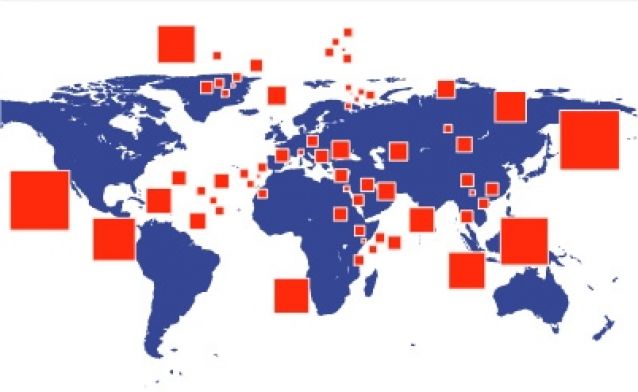|
|
|
Autor:
Lušić Vlado
Datum:
19.06.2014
Objavljeno na:
Slika autor/izvor:
ja
|
|
Objavi na:
|
Croatian Immigrants’ Congress – Why not? In order not to be a ‘general after the battle’, I am thinking in advance about the importance of resolutions and effects of the forthcoming Croatian Diaspora Congress to be held from 23rd to 26th June this year in Zagreb. The Congress is expected to provide answers to the following questions:
Admittedly, the idea of holding the Croatian Diaspora Congress is timely and relevant. The Congress organizers have put in a lot of hard work particularly into attracting prominent institutions from Croatia and abroad. They made an appropriate Website and notified media outlets. Due to their efforts the response and attendance ought to be good. So, from the organisational point of view, this Congress should be a success. I am afraid, however, that the Congress, just like all the other similar gatherings before it, may finish short of feasible and enforceable resolutions that are urgently needed for integrations between the Croatians at home and those living abroad. Furthermore, I am worried that it may not make an adequate contribution to the idea of demographically strong, economically developed and socially sustainable Croatia. I pray to God that my fears and worries would prove to be unjustified. Someone may now rightfully ask: “Why would the Congress end up short of concrete proposals and enforceable resolutions if its organisers have done such an immaculate job”?It is possible because we, the Croats, traditionally get carried away in endless and meaningful speeches full of pompous platitudes. We are not used to finding simple and effective solutions. Although, there have been exceptions! Furthermore, we always try to solve problems in a legislative and/or bureaucratic way instead of choosing a managerial or entrepreneurial approach. We often introduce plans and laws that later prove to be non-feasible. Respect is due to rare exceptions! Also, we almost always have the urge to start projects and reforms with extensive academic studies that reach far back into unchangeable history instead of analyzing present day situations to create useful feasibility studies and strategies. There have been exceptions, of course! Why am I repeatedly mentioning exceptions? I do that in order to emphasize the importance of good examples and precedents in presenting theses – including the theses herewith. For example, when in 1991 the forth European military power attacked the then unarmed Croatian state, to conquer and to depopulate it by killing, raping, burning and destroying, in order to create the so called “Greater Serbia”, Franjo Tuđman expediently selected and integrated the most capable military and other relevant people from home and abroad. In no time he orchestrated his defence strategy and wartime systems for Croatia. That was an exception. That was an example of a good managerial and/or entrepreneurial approach to problem solving. Under the circumstances, Tuđman applied the only possible and suitable method of organizing and ruling. It’s commonly known as ‘autocratic management’ and/or ‘crisis management’. He created a combined military-civilian ‘think-tank’ which very quickly analyzed the situation within Croatia and internationally. Upon that, his think-tank expeditiously orchestrated Croatia’s defence strategy. It was a simple but effective strategy – totally different to any other in Croatia’s history. Its basic factors were ‘reconciliation’ and ‘integration’ of all Croatians – at home and globally. Tuđman also believed in the well known Croatians’ capability to convert, whenever necessary, into excellent soldiers and defenders. He was aware of peoples’ ability to function when standard systems get incapacitated or eliminated. After just a few years, it became evident that it was an excellent strategy. For the first time in history Croatia achieved her full sovereignty with all attributes of a modern statehood. I am convinced that any long and tedious political, scientific or academic researches and studies in 1991 regarding Croatian migrants and their communities all over the world, with public debates about who and what was more or less important in history, would have led Croatia into yet another defeat. There wouldn’t have been Vukovar to slow down the much stronger enemy for a very long time and to dramatically reduce its moral. Furthermore, there wouldn’t have been the historic military operation Oluja to end the war and to bury the myth about “Greater Serbia”. Today, Croatia undoubtedly needs the same managerial and/or entrepreneurial approach to again activate its worldwide human resources. The reason is different but the method must be the same. Studies at academic or scientific levels are generally important for the society. However, for the project of Croatian intercontinental interaction and integration, aimed at achieving fast economic development and possible demographic growth, they would be counterproductive. They would handicap any effective realization of the project. The main international target group should be the people of Croatian background. They are Croats de facto but not de jure. Most of them only have citizenships of their countries of birth such as Australia, Canada, Chile, New Zealand, USA, and so on. However, with an efficient approach, the people that I call ‘foreign citizens of Croatian background’ could almost immediately become one of Croatia’s main nonmaterial resources. Every Croat from abroad, regardless of his/her citizenship status, assets or age, must feel welcome in Croatia. That doesn’t mean that we need to do more never-ending studies about various reasons and historic situations that made their great grandparents leave the Croatian homeland. Those studies have already been done extensively. In that context, I once told a good friend from the academic circles that our emigrants who are now buried and resting in peace at the Croatian section of Sydney’s largest cemetery cannot be included in any integration because they certainly would not be returning to Croatia. We should focus on emigrants that are now entering their retirement age and on younger people who are ready to test themselves in business. Croatia’s immigration strategy must be particularly sensitive to children and grandchildren of ex-patriots, especially to those who are now digging for their ethnic roots and genetic backgrounds. I talked recently to four young Australian people, three women and one man, who came to Split and Dubrovnik while travelling in Europe a few years ago. At the time of planning their European trip, Split and Dubrovnik were to them just two exotic places mentioned in various media advertisements or reports. They spoke some Croatian because their parents were Australian immigrants from Croatia. Only one of them, Marija, was born in Croatia and had a Croatian Citizens Registration Number. She came to Australia as a baby. All four of them, including Marija, were Australian citizens who have never belonged to any Croatian organisations Down Under. Their parents may have but they have not. However, they were all interested in their European and/or Croatian roots. All four of them were impressed by Croatia and stayed longer than originally planned. They easily interacted with local Croatians of their generation and met many people who were very “similar” to them. Most of them eventually fell in love with a local Croatian. Their parents, who still live in Australia, had given them all their personal documents needed to apply for Croatian citizenship. Eventually, they became Croatian citizens and formed their ‘Croatian-Australian’ relationships. They all now live in Croatia and some already have children – little bilingual Croats. Briefly; two young women, Korana and Maria, opened the first Australian style hostel in Split. Sasha and his wife, who is from Virovitica, now live in Dubrovnik. He has an Australian-Croatian style wine-bar in the old part of Dubrovnik. Michelle, the forth Australian who came here last, works for a company that hires luxury motor yachts in Dalmatia. She is still in her interactional stage but plans to have her own small business eventually – something that is common to all young people who come from overseas counties. All four young Australians had small but adequate savings to start their own businesses. They all work. Furthermore, they all love Croatia, which is, they say, “different” to Croatia they imagined before coming here. Without an exception, they all have only one question: “Why does Croatia still have slow, complicated and inefficient legislature and bureaucracy”? As young people they can withstand almost any obstacles but their parents, when in Croatia, cannot be immune to humiliations by some public servants. They believe that our bureaucratic systems belong in the middle-ages and some of their employees are not servants of the people and the country because they can’t think logically. Furthermore, they feel that Croatians are obedient and apathetic citizens who tolerate and submit to humiliations because they never learned how efficient systems should function.
Every congress from now on should be called Croatian Immigrants’ Congress while all messages, resolutions and initiatives must be in line with the thinking of the four young Croatian-Australian families from this story. I am sure that four similar examples may be found in Croatian-Canadian, Croatian-USA, Croatian-German, etc. interactions and integrations. This Congress and every one after it must ask the question: Why doesn’t Croatia have 400 thousand such examples? It must offer ideas how to find answers to that question. I insist on the managerial or entrepreneurial approach. It’s very important for the future running of Croatia. The Congress also must send a message to Croatians abroad, particularly to those who are active in various social, sporting, cultural and religious organisations. It’s expected from them to encourage ex-patriots to be responsible and aware of Croatian national interests that guarantee economic stability. They should be advised the following: Ask not what Croatia can do for you but what you will do for Croatia. Make a small step. For example, spend a few hundred dollars on your registration as a Croatian citizen and get a Croatian Passport. After that, spend a few more dollars on getting the same privileges for your children and grandchildren. Make visiting Croatia your personal obligation. Help younger members of your family to spend some time in your homeland. Make it possible for them to interact with young friends in Croatia. Doing all that, you will make a great contribution to Croatia’s sustainability and continuity as a nation. |
|||















